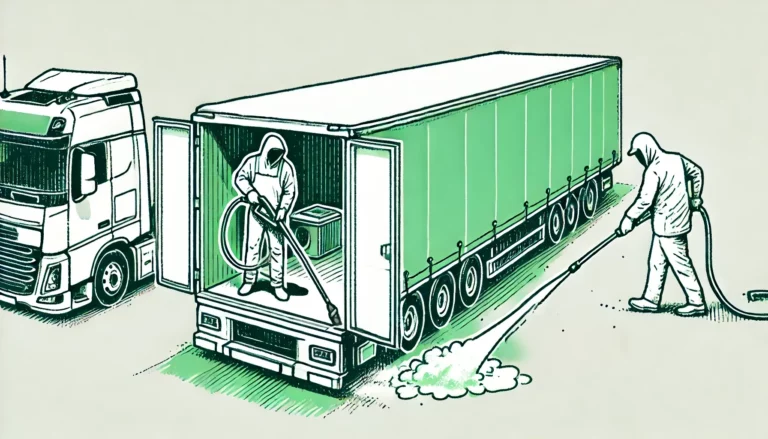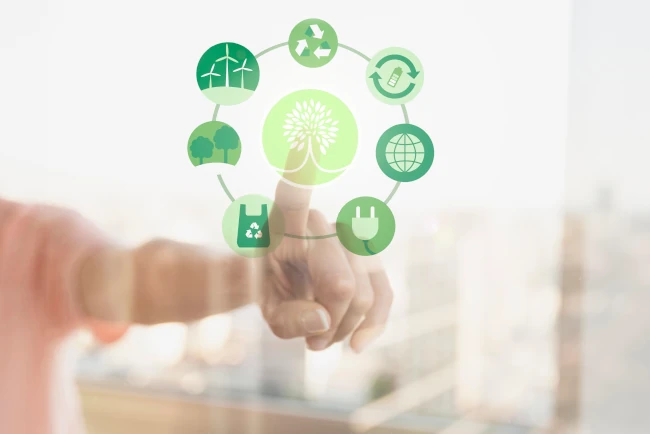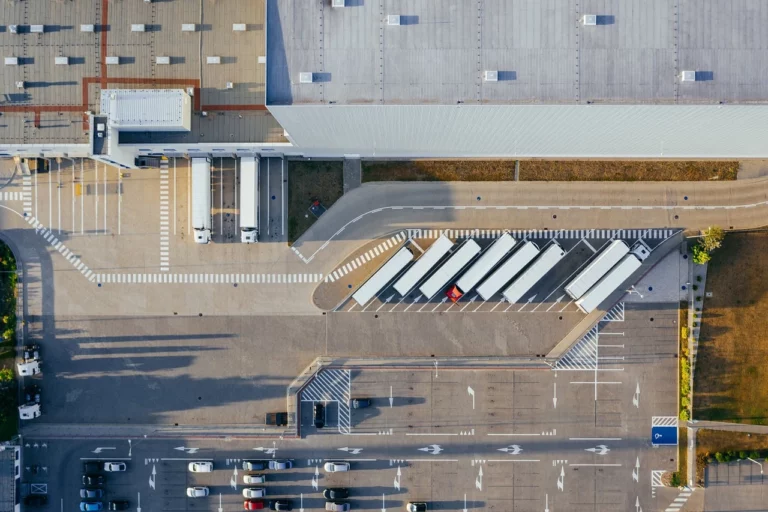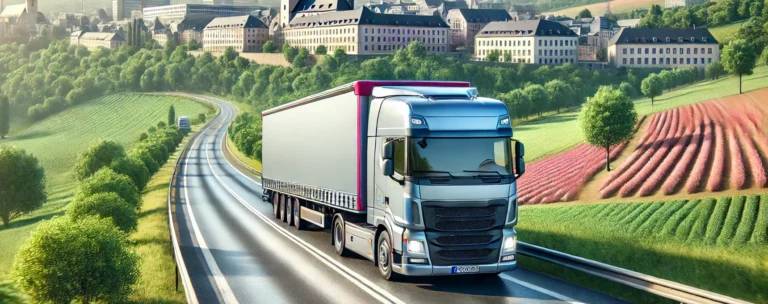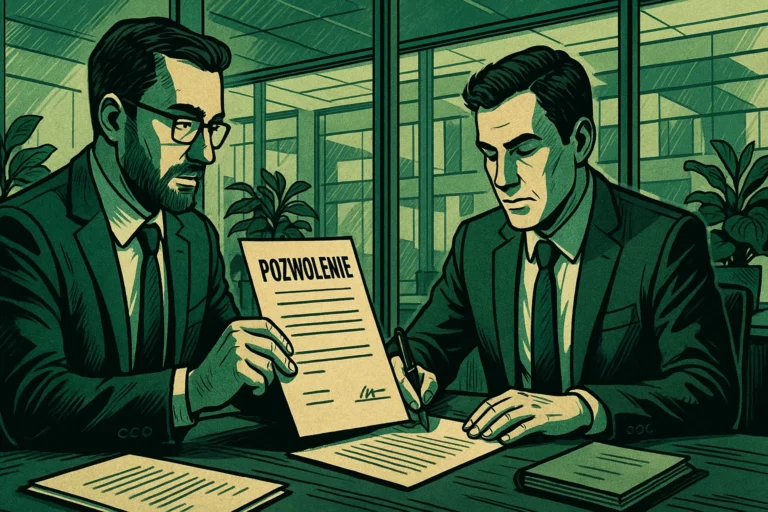Waste recycling in Europe - expectations versus reality
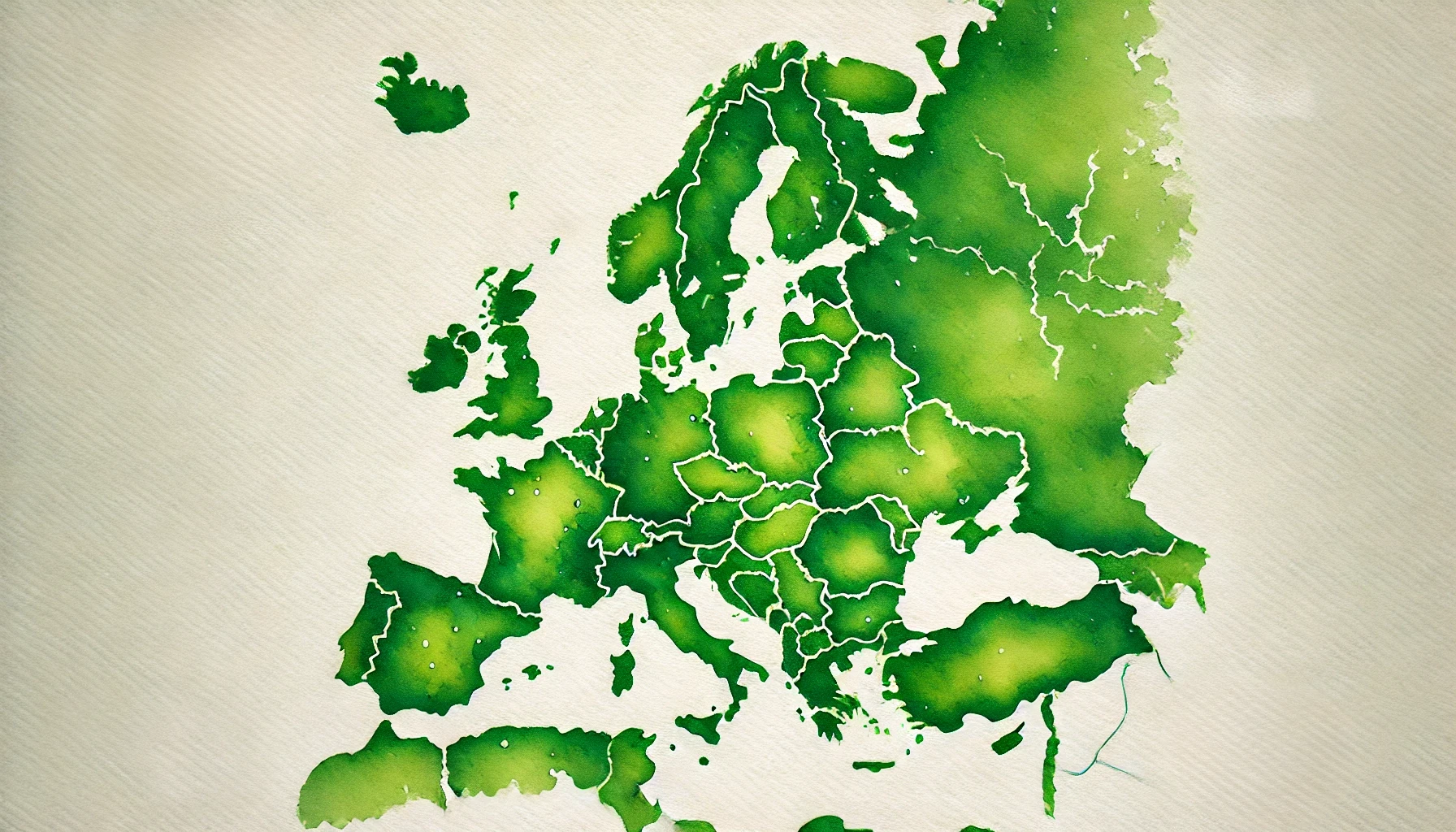
There is talk of a circular economy, but the facts are merciless: only 38 % of municipal waste in the EU is recycled. The remaining materials - often still valuable raw materials - are lost irretrievably. The European Union sets ambitious recycling targets, but practice shows how difficult the road from strategy to effective implementation is. Why is recycling still limping along - and what can we do to change this trend?
Recycling in Europe - who is leading the way and who is closing the gap?
The European Union relies on recycling as a key to sustainable development. However, reality shows that not all countries are doing equally well. Below is a breakdown of the 10 EU countries by percentage of municipal waste going to recycling in 2022:
Recycling of municipal waste in the EU (2010 vs 2022)
| Country | 2010 [%]. | 2022 [%]. |
|---|---|---|
| Germany | 62.5 | 69.2 |
| Austria | 59.4 | 62.6 |
| Slovenia | 22.4 | 62.6 |
| Netherlands | 49.2 | 57.5 |
| Belgium | 54.8 | 54.7 |
| Luxembourg | 46.5 | 54.6 |
| Italy | 31.0 | 53.3 |
| Switzerland | 50.5 | 52.2 |
| Latvia | 9.4 | 50.8 |
| Slovakia | 9.1 | 49.5 |
Data compiled from the report "Waste recycling in Europe"published on the website of the European Environment Agency.
Why do some countries recycle waste better?
- Countries such as Germany and Austria have already been investing in environmental education, extensive separate waste collection systems and imposing high landfill fees for years.
- The leaders also have state-of-the-art recycling facilities.
- In addition, many countries have support mechanisms in place for companies using recycling, e.g. tax breaks or refunds.
- High penalties are foreseen for landfilling or incineration of recoverable materials, which effectively mobilise better segregation.
But what makes other countries fail?
- Countries with low recycling rates often lack the technology or funding to modernise their waste management.
- When citizens are not properly educated, separate collection is virtually non-existent.
- Non-enforcement or ambiguity often leads to abuse and falsification of statistics. However, shortcuts never pay off.
Waste management a problem? Contact with us
Ambitious targets, too slow - why isn't the EU meeting the standard?
The European Union has adopted plan to achieve 65 % recycling municipal waste by 2030 and to limit landfill to a maximum of 10 %. Although official statistics show that recycling levels in many countries are not growing as fast as expected, the real reasons for this stagnation are much deeper hidden. Lack of stable markets, underinvested infrastructure, poor quality of selectively collected materials or lack of economic incentives are just some of the elements that remain invisible at first glance, but have a fundamental impact on the functioning of the entire waste management.
The graphic below illustrates this relationship: what we see on the surface is the result of a complex, systemic problem.
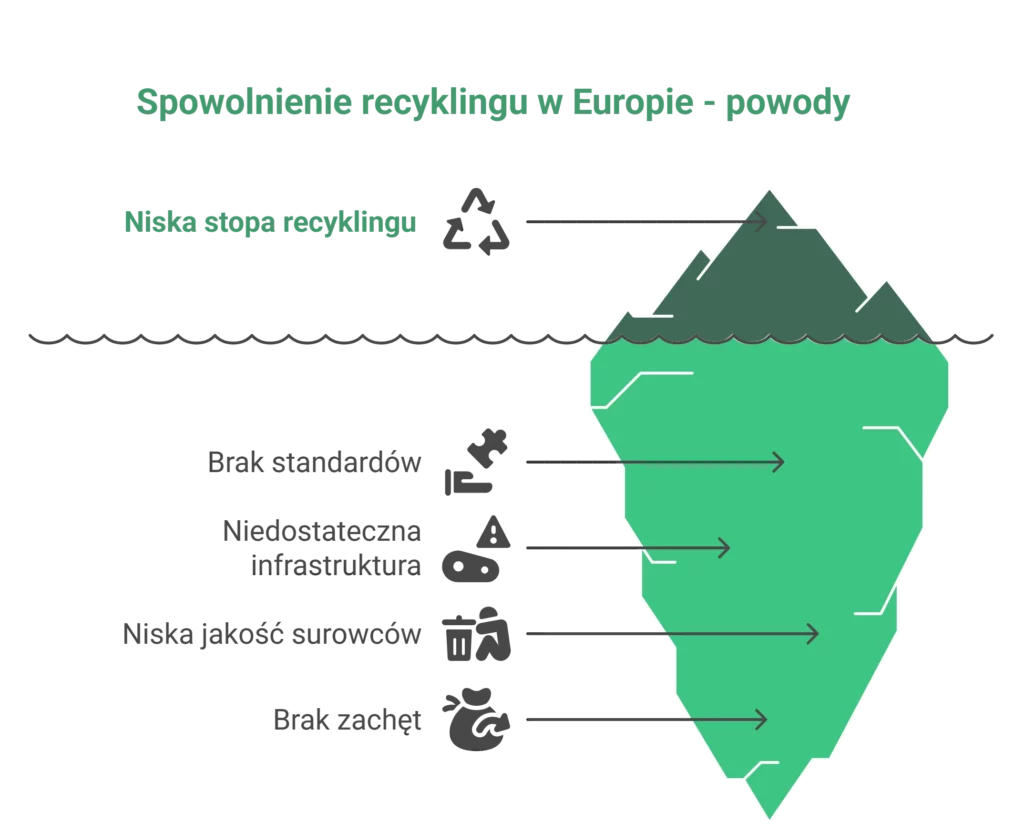
Why is recycling important - and what happens when it is neglected?
Professional recycling is not just a machine, but a complex process requiring the involvement of many links:
- Selective collection at source. The better the segregation at the waste generation stage, the greater the chances of effective recovery. This is because improperly segregated waste can contaminate entire fractions.
- Quality and purity control of the raw material. Recyclers must be able to reject contaminated feedstock. Therefore, it is important to educate waste generators and have strict logistical control.
- Matching the installation to the fraction. Specialised facilities are therefore required - separate for plasticsglass, metals or organic waste.
- Records and certification. All waste management activities should be documented - a waste acceptance report, a recovery report, and certificates proving the legality of the operation.
Waste recycling - what happens when it is neglected?
Still, many companies approach the issue of waste recycling and the associated obligations with reluctance (or ignorance). However, it is important to remember that if waste is not recycled or managed in other environmentally safe ways, this will result:
- waste going to landfill,
- illegal exports (often to Asia or Africa),
- administrative penalties,
- loss of reputation and customer confidence.
In the age of ESG (Environmental Social Governance - a set of criteria for assessing companies in terms of their environmental impact, social responsibility and management quality) and an increasingly aware society, such negligence can cost more than disposal alone.
The professional recycler - your partner in crisis and growth
Working with a specialised recycling company is not just about convenience. It is also a real benefit for the company and the environment.
What do you gain?
- Regulatory compliance - as the company is aware of all current regulations and will ensure compliance.
- Comprehensive documentation - BDOs, KPO cards, recovery receipts, certificates.
- Transparency of the process - full insight into what happens to the waste from the moment it is handed over.
- Cost optimisation - less waste goes to landfill, so the company pays lower environmental fees.
- Safe logistics - adequate security, ADR and SENT compliant transport.
- Image support - so your company can show off its GOZ (circular economy) activities.
Give waste a second chance - and yourself peace of mind
If you run a business and generate waste, don't wait for the problem to solve itself. Take matters into your own hands today. Visit www.odpadytransport.pl - is a platform that connects waste producers, hauliers and also recyclers. By filling in the contact form, you will receive expert assistance and a proposal for the optimal management of your waste - in addition to complying with regulations and in the spirit of a closed loop economy.
Don't let waste be just a cost. After all, by working with the right partners, it can become a valuable resource. Then your company will gain a reputation for being modern and responsible. Do you have any questions? Write to us at dispo@ekologistyka24.pl.
Think waste recycling has no secrets for you? Take a short test and see if you know as much about it as you think you do. And even if it turns out that you are not as knowledgeable about the subject, don't be discouraged. With our help, waste management issues will no longer be a problem.
WHAT DO YOU KNOW ABOUT WASTE RECYCLING?
Correct answers:
1b, 2a, 3b, 4a, 5a, 6c, 7c
If you are interested in our little knowledge test, in one of our previous publications you will find a similar one. See if you can handle it too.


